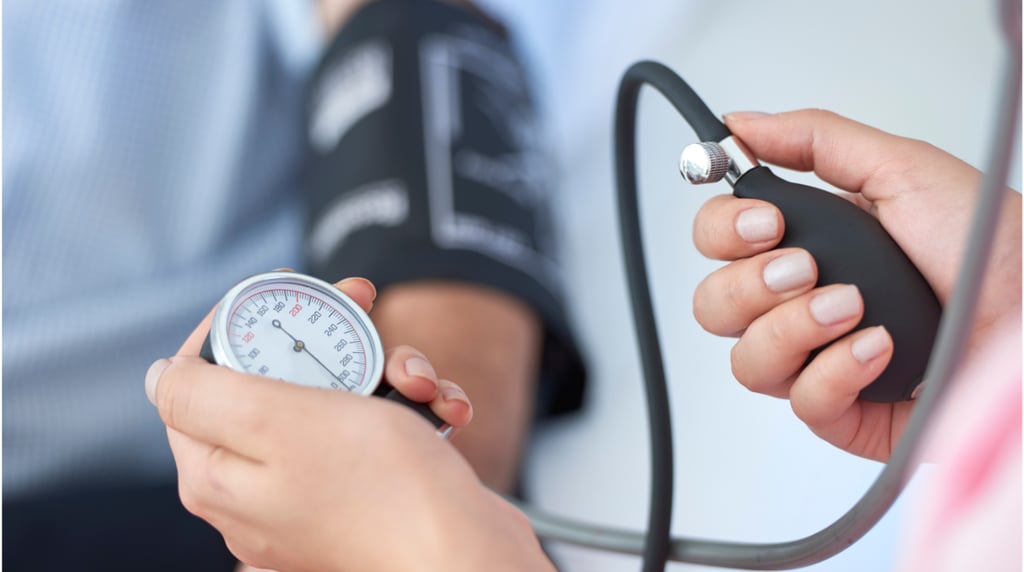Blood pressure control: why it’s essential for your health and how to keep it in check
Learn why controlling blood pressure is key to preventing serious diseases and discover simple daily habits to keep it healthy.
8/11/20253 min read


Keeping your blood pressure under control is one of the most important ways to protect your heart, kidneys, and brain. Yet millions of people around the world live with high blood pressure without knowing it — and that dramatically increases the risk of serious health problems.
In this article, we’ll explain why blood pressure control matters, the dangers of hypertension, how to measure it correctly, and what you can do every day to keep your numbers in the healthy range.
What is blood pressure and why It matters
Blood pressure is the force your blood exerts against your artery walls as it circulates through your body. It’s measured using two values:
Systolic pressure: the pressure when your heart contracts and pumps blood.
Diastolic pressure: the pressure when your heart relaxes between beats.
For healthy adults, the ideal reading is below 120/80 mmHg. Readings above 140/90 mmHg are considered high blood pressure (hypertension).
Keeping your blood pressure within this range greatly reduces the risk of heart disease, stroke, kidney failure, and even vision loss.
The silent danger of hypertension
High blood pressure is often called the “silent killer” because it usually causes no symptoms until serious complications arise. Many people only discover they have it after a heart attack or stroke.
Major health risks linked to uncontrolled hypertension:
Heart attack
Stroke (CVA)
Heart failure
Chronic kidney disease
Vision loss
Vascular dementia
Tip: Even if you feel fine, check your blood pressure regularly. Early detection can save your life.
How to measure blood pressure correctly
Accurate readings are essential for real control. Follow these guidelines for proper measurement:
Rest for at least 5 minutes before taking the measurement.
Sit with your back supported and feet flat on the floor.
Support your arm at heart level.
Avoid coffee, smoking, or exercise 30 minutes before measuring.
Use a calibrated, reliable device.
Track your readings, and if high values occur often, see your doctor.
Factors that increase blood pressure
Several lifestyle and health factors contribute to hypertension, including:
Excessive salt intake
Sedentary lifestyle
Overweight or obesity
Chronic stress
Excessive alcohol consumption
Smoking
Family history of hypertension
Recognizing these risk factors is the first step toward prevention.
Strategies to keep blood pressure under control
Managing blood pressure is possible — and often depends more on lifestyle than on medication.
1. Eat a heart-healthy diet
Reduce salt intake and avoid processed foods high in sodium.
Eat fruits, vegetables, and legumes daily.
Choose whole grains and fiber-rich foods.
Include potassium sources like bananas, potatoes, and beans, which help balance sodium levels.
2. Exercise regularly
Activities like walking, cycling, swimming, or strength training help strengthen your heart.
Aim for at least 150 minutes of exercise per week.
3. Maintain a healthy weight
Excess weight increases strain on the heart.
Losing even 5% of body weight can lower blood pressure significantly.
4. Manage stress
Practice deep breathing, meditation, or yoga.
Set aside time for relaxation and enjoyable activities.
5. Limit alcohol and avoid smoking
Keep alcohol intake moderate (up to 1 drink per day for women, 2 for men).
Quit smoking — it damages blood vessels and raises cardiovascular risk.
When to seek medical help
If your readings frequently exceed 140/90 mmHg, or if you have risk factors like diabetes, high cholesterol, or family history, consult your doctor for evaluation.
Treatment may include:
Lifestyle modifications
Prescription antihypertensive medications
Regular medical follow-ups
Consistency and medical supervision are key to long-term success.
Benefits of keeping blood pressure in check
Maintaining healthy blood pressure brings both immediate and long-term benefits:
Lower risk of heart attack and stroke
More energy and vitality
Improved kidney function
Sharper memory and cognitive health
Longer, healthier life
Take care of your pressure, take care of your life
Controlling blood pressure is a daily investment in your well-being. Small lifestyle changes can prevent serious complications and extend your life expectancy.
Don’t wait for symptoms to appear — monitor your blood pressure regularly, adopt healthy habits, and follow your doctor’s guidance.
Start today: cut down on salt, move more, and take care of your body. Your heart will thank you.
For more health and wellness tips, keep following our blog and learn how to build simple, lasting habits for a healthier life.
Health
Tips for a healthy and balanced life.
© 2025. All rights reserved.
Well-being
Privacy Policy
Terms and conditions
